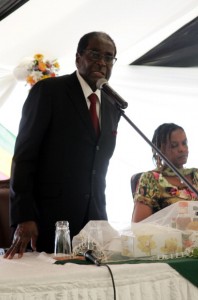
In the wake of contested presidential and parliamentary elections in 2008, Zimbabwe experienced high levels of political violence. Amnesty International documented deaths, disappearances, torture, and arrests of civilians, political opposition members and civil society. Citizens were rounded up and taken to “re-education camps,” which were mostly school buildings in rural areas, where they were forced to pledge allegiance and sing songs in support of President Robert Mugabe’s political party, ZANU-PF. Women were also brutally raped, often by multiple perpetrators.
Zimbabwe has not signed the Rome Statute, so they are not subject to the jurisdiction of the International Criminal Court unless referred by the UN Security Council. However, South Africa has signed the Rome Statute and in doing so, made a commitment to pursuing international justice. A South African court previously held that the country has a requirement under this commitment to investigate, arrest and prosecute perpetrators of torture in Zimbabwe who cross the border into South Africa-but prosecutors declined to do so and the government appealed that decision.
This week however, it was announced that South African prosecutors will investigate the rape allegations and pursue the arrest and prosecution of any alleged perpetrators who enter South Africa. This is not only the first time an African country has invoked universal jurisdiction to pursue alleged perpetrators of crimes against humanity, it is also the first time ANY country has used universal jurisdiction to investigate rape as one of these crimes. This is a watershed moment in ending impunity, advancing international justice, and sending a message to perpetrators of violence that crimes against humanity will not be tolerated. Well done, South Africa. Well done.
